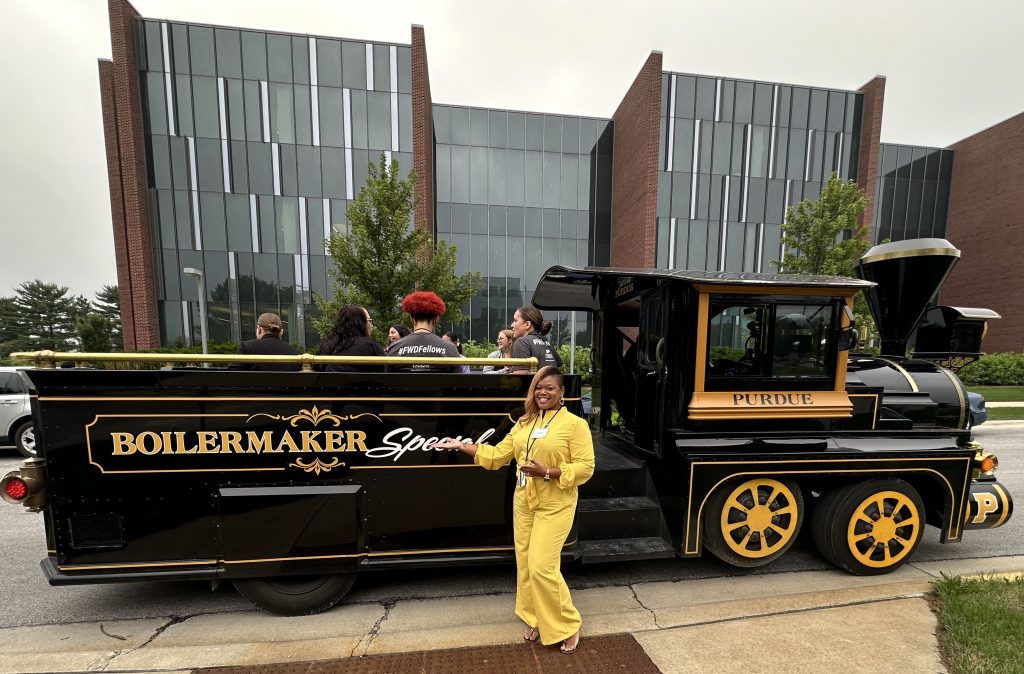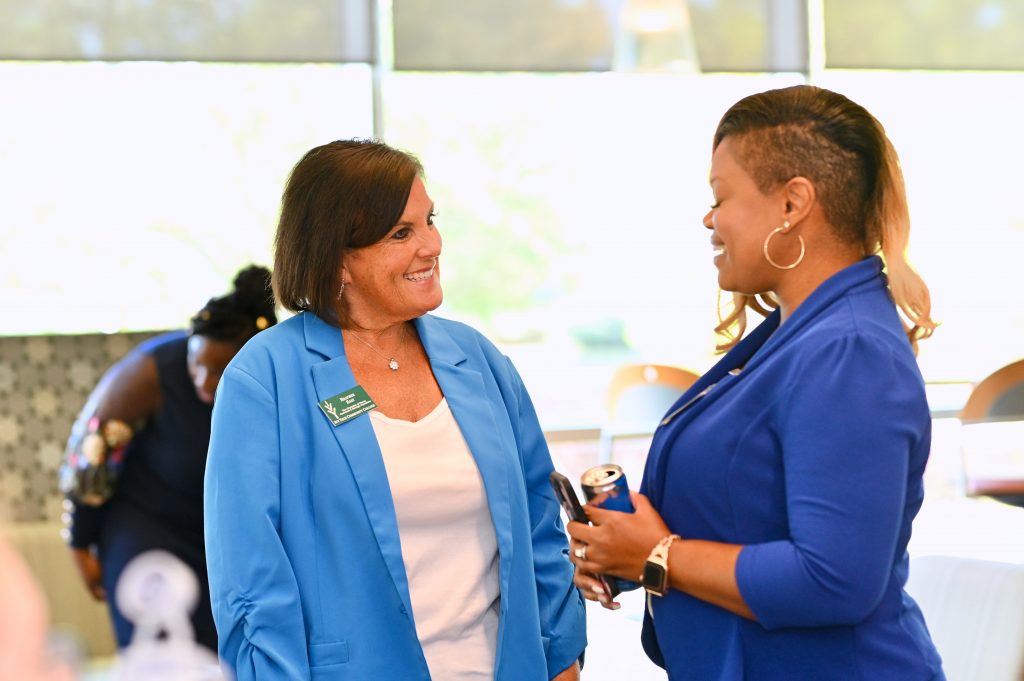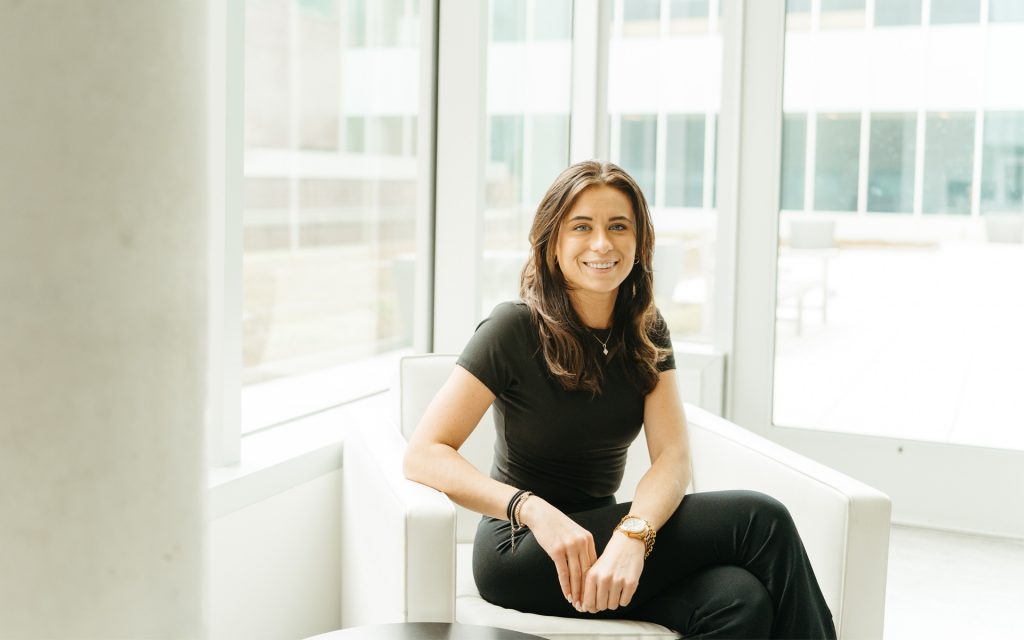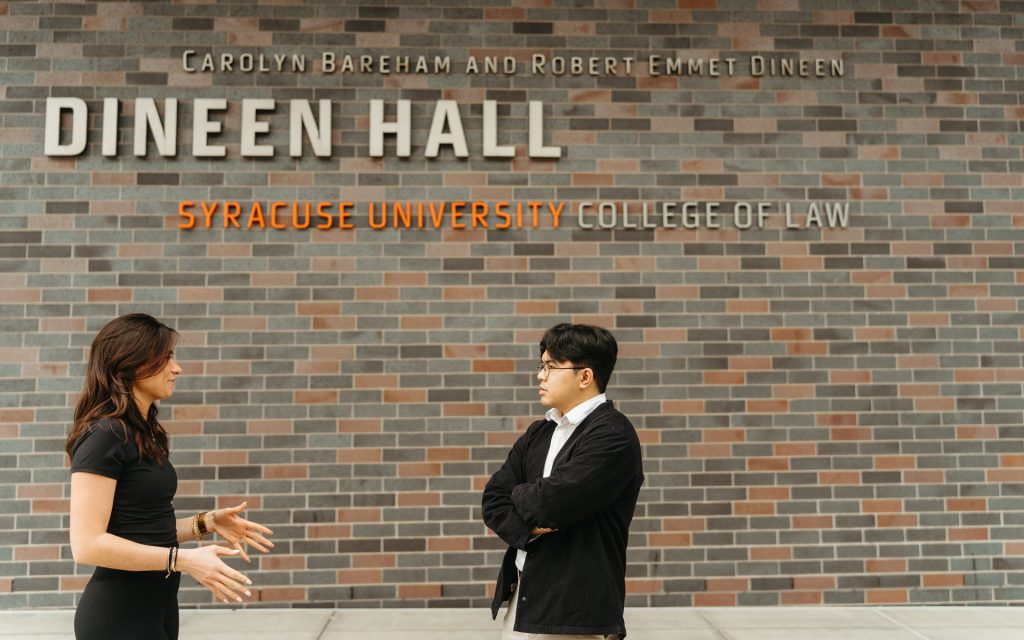College of Law professor who is an expert on criminal court pretrial appearance is partnering with computer science faculty to see if artificial intelligence tools and optimized data analysis can improve fairness and efficiency in scheduling defendants’ court dates.
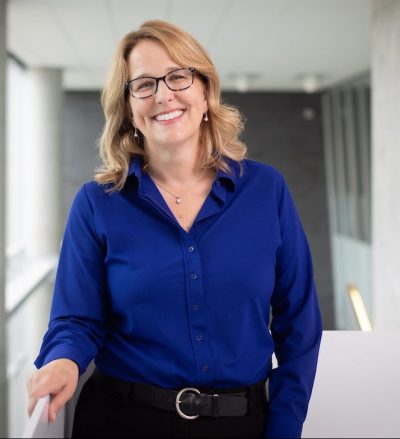
Lauryn Gouldin (Photo by Marilyn Hesler)
Lauryn Gouldin, Crandall Melvin Professor of Law and a 2022-25 Laura J. & L. Douglas Meredith Professor of Teaching Excellence, is one of three researchers on the project, “End-to-End Learning of Fair and Explainable Schedules for Court Systems.” She and Fernando (Nando) Fioretto, assistant professor of computer science at the University of Virginia (formerly of Syracuse University) and William Yeoh, associate professor of computer science and engineering at Washington University in St. Louis received a $600,000 National Science Foundation (NSF) grant for the research. They are examining three issues: the uniformity and fairness of criminal court-date scheduling processes, if individual circumstances are considered when setting court dates, and whether a “smarter” computerized system can produce more equity and efficiency in those processes.
Ensuring that defendants who are released before trial return to court as scheduled is one of the primary goals of the pretrial process, Gouldin says. “Fortunately, data across jurisdictions suggest that most defendants show up for court as required. With bail reform efforts in many jurisdictions leading to higher rates of pretrial release, courts are focused on ensuring that pretrial appearance rates remain high,” she says.
Scheduling court appearances on dates and at times that work for defendants will help keep pretrial appearance rates high and avoid court system inefficiencies, she believes. Many factors—often legitimate hardships—can influence whether a defendant appears in court when scheduled. Gouldin says those factors are not consistently considered by courts and there is little uniformity in how appearance dates are scheduled from court to court.
The researchers are working to produce a system that predicts dates and times when defendants are more likely to appear versus being assigned an arbitrary court date or time. They believe having that knowledge, along with more flexibility in scheduling court dates—such as setting evening or weekend appearance dates—could improve pretrial appearance rates and create a more equitable scheduling process overall.

